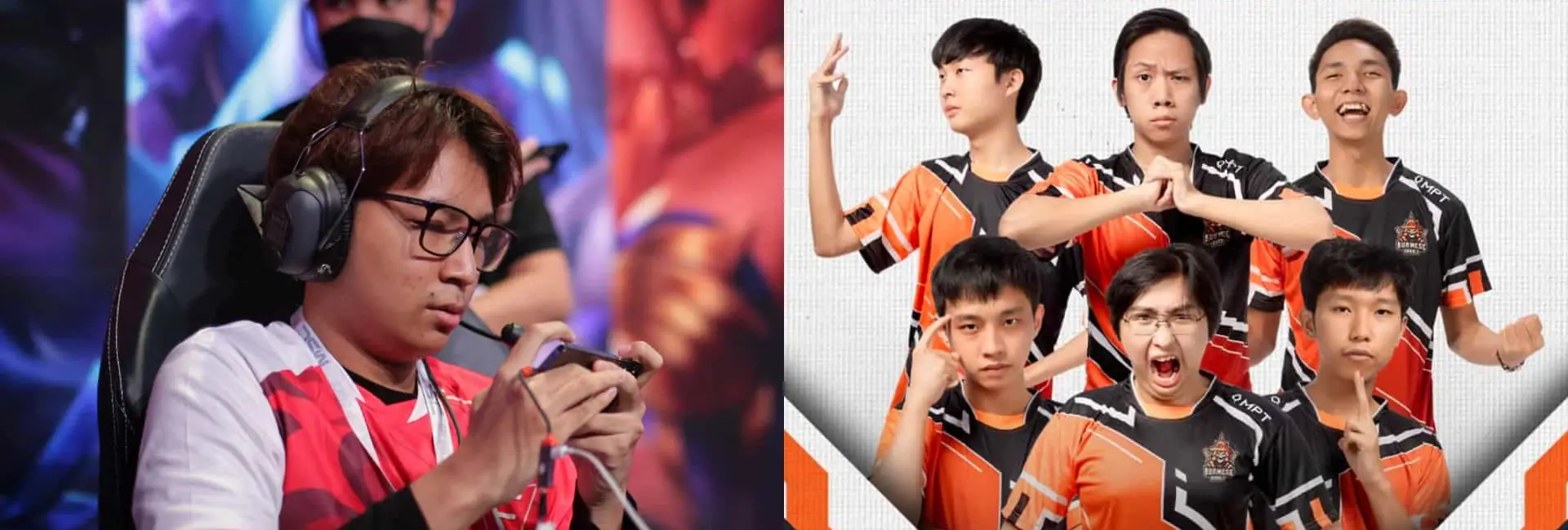🔰 eSports Gaming in Myanmar

Esports in Myanmar is still in its infancy, but the industry holds immense potential given the country’s young and tech-savvy population. While competitive gaming is growing rapidly, Myanmar has also faced significant challenges that have slowed its esports progress. Let’s dive into the exciting opportunities and hurdles for Myanmar’s esports scene.
Potential and Progress
Myanmar is witnessing a boom in internet access, particularly through mobile gaming. Mobile esports games like Mobile Legends: Bang Bang and PUBG Mobile are wildly popular, largely because of their accessibility on smartphones, the primary gaming device for the majority of the population. As mobile internet continues to expand, the number of gamers increases, fueling an organic rise in esports enthusiasts.
Several local tournaments have already taken place, often backed by international sponsors. Events like the Myanmar Esports Championship have drawn attention to the country’s rising talents. The passion for gaming and competition among Myanmar’s youth is evident in their engagement with popular platforms like Facebook Gaming, where gaming content creators thrive.
In 2021, Myanmar hosted its first official SEA Esports Championship qualifier, which marked a significant step toward regional participation. This has encouraged local players to aim for international recognition and provides a pathway for aspiring professionals to compete on the global stage.
Challenges and Problems
Despite this potential, the esports industry in Myanmar faces numerous obstacles, particularly due to the country’s infrastructure and political instability. Internet connectivity, although improving, remains inconsistent and expensive. Power outages and slow internet speeds hinder gaming performance, making it difficult for players to train at a competitive level or for events to be organized efficiently.
Furthermore, the political situation in Myanmar, especially following the military coup in 2021, has caused further instability. Restrictions on internet usage, censorship, and political unrest have disrupted the growth of all sectors, including esports. Tournament organizers face logistical hurdles, and there’s always uncertainty surrounding events due to possible government-imposed internet blackouts.
Another issue is the lack of institutional support and investment in esports. Unlike neighboring countries like Vietnam or Thailand, Myanmar has no official governing body for esports. This limits the professionalization of the scene, making it difficult for players to secure stable income or sponsorships. The lack of structured development programs and coaching also slows down the progress of talent within the country.
The country’s athletes often face major infrastructural problems. Power outages are a frequent issue, especially during the summer months when electricity use peaks. Gamers who cannot afford backup generators struggle to keep up in competitions. Additionally, the internet infrastructure, though improving, is still slower and less reliable compared to other countries, causing high latency issues, or “high ping,” which can be detrimental in esports (Bangkok Post).
Despite these hurdles, Myanmar has seen promising developments. Teams like the “Burmese Ghouls” have risen to international prominence, securing a second-place finish in the Mobile Legends M2 World Championship in 2021. Moreover, esports tournaments like those held at the Southeast Asian Games (SEA Games) have helped Myanmar’s talent gain exposure, despite logistical challenges (ESWF.ca).
The future of esports in Myanmar looks bright, but the country needs more investment in infrastructure, professional support, and societal recognition for esports to reach its full potential.
Looking Forward
Despite the challenges, the future of esports in Myanmar remains bright. If the country can overcome its infrastructural and political obstacles, there’s no doubt that it has the potential to become a thriving esports hub in Southeast Asia. Investments in gaming infrastructure, alongside the growing passion among its youth, could unlock Myanmar’s esports potential. Organizations and local gaming communities are pushing forward, hoping to establish a more structured and supportive environment for future players. For further reading on Myanmar’s esports landscape, check out this detailed overview on The Esports Observer.
What is Myanmar Stance on Casino-like Elements in Online Games?
Myanmar does not have a well-established or clear legal framework specifically addressing casino-like elements in online games, such as loot boxes or skin lotteries. However, some key aspects of its broader legal stance on gambling and digital content can provide insights into how these elements might be viewed:
Key Points on Myanmar’s Stance:
General Gambling Laws:Myanmar has strict anti-gambling laws under the Gambling Act of 1899, which prohibits most forms of gambling within the country. The laws are outdated, and enforcement can be inconsistent, but they generally ban gambling activities for locals, though exceptions exist for foreigners in some tourist-targeted casinos.
Myanmar Online Casino Laws
In recent years, Myanmar has ramped up efforts to crack down on illegal online gambling platforms. Although there is no specific legislation targeting loot boxes or casino-like features in online games, the government’s stance on online gambling suggests that any mechanics resembling gambling could come under scrutiny.
Lack of Specific Regulations for Myanmar Online Casino Games:
At present, Myanmar does not have laws that specifically regulate in-game purchases, loot boxes, or gambling-like features in video games. This means that developers and game platforms operating in Myanmar are not currently subject to detailed scrutiny regarding these features. However, as international pressure increases and more countries start regulating these features, Myanmar could eventually introduce more tailored legislation to address potential concerns, especially given its broader anti-gambling policies.
In summary, while Myanmar has strict laws against traditional gambling and has taken steps to control online gambling, there is no clear legal stance on casino-like elements in online games. Future regulations may evolve as part of broader efforts to regulate digital content and prevent gambling among locals.


